I was intrigued by 'Highland Clans' - many of the points he makes, many of the anecdotes that he highlights, are those that I use on my own tours. But one extraordinary anecdote was new to me....
 In 1597 the Edinburgh Parliament passed an act to enable the foundation of three new towns in the Highlands. One of these was to be on the Isle of Lewis, traditional land of the MacLeod clan. The name given to the company formed to establish the town on Lewis speaks volumes: "The Gentlemen Adventurers for the Conquering of the Isles of Lewis". Like those who were colonising the east coast of North America, they dug a ditch around their settlement and built a stockade. And, just as in Virginia, the indigenous inhabitants took exception. In 1601 the Adventurers retreated but legally they were still owners of the island and they sold it to the Mackenzies who established themselves with 700 men. Neil MacLeod, chief of the clan, resisted, was arrested and eventually stood on a gallows in Edinburgh's Royal Mile.
In 1597 the Edinburgh Parliament passed an act to enable the foundation of three new towns in the Highlands. One of these was to be on the Isle of Lewis, traditional land of the MacLeod clan. The name given to the company formed to establish the town on Lewis speaks volumes: "The Gentlemen Adventurers for the Conquering of the Isles of Lewis". Like those who were colonising the east coast of North America, they dug a ditch around their settlement and built a stockade. And, just as in Virginia, the indigenous inhabitants took exception. In 1601 the Adventurers retreated but legally they were still owners of the island and they sold it to the Mackenzies who established themselves with 700 men. Neil MacLeod, chief of the clan, resisted, was arrested and eventually stood on a gallows in Edinburgh's Royal Mile.MacLeod, a Gaelic speaker, did not understand anything that was said to him - until the hangman referred to him as bhodach, 'old man'. He knew that word and took exception, headbutting the younger man; and the crowd bayed for the blood of this savage. They got their blood of course. And the idea of Highlanders as savages continued until and beyond the Battle of Culloden in 1746 when this view of an alien people, was encouraged by government generals whose men had several times fled in the face of the Highland Charge (but stood firm on that day).
For centuries Scotland was divided. In the north, a nation of subsistence farmers spoke Gaelic, wore tartan, played bagpipes and recognised no authority beyond their clan chief. The other nation (which controlled affairs) did none of the above and they despised, feared and hated their northern neighbours.
This has led to many problems and complications. The least of which, perhaps, is whether Lewis is MacLeod clan territory or rightly belongs to the Mackenzies whose traditional clan chief took his name from Loch Seaforth on Lewis (above).











































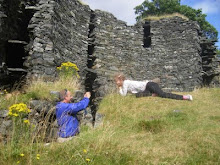
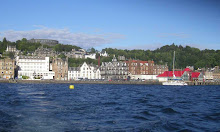
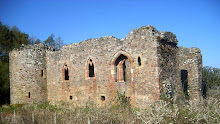
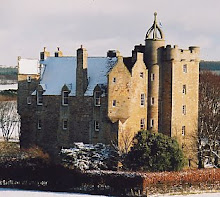
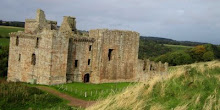

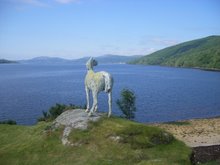

No comments:
Post a Comment